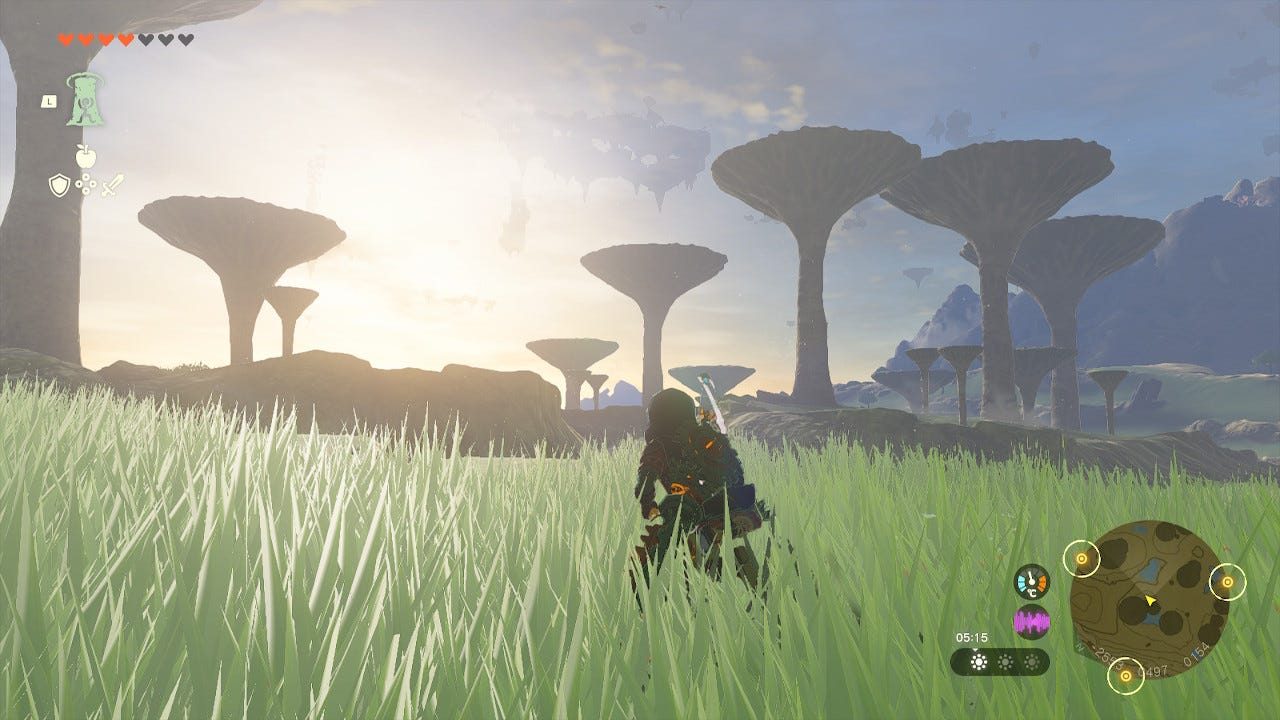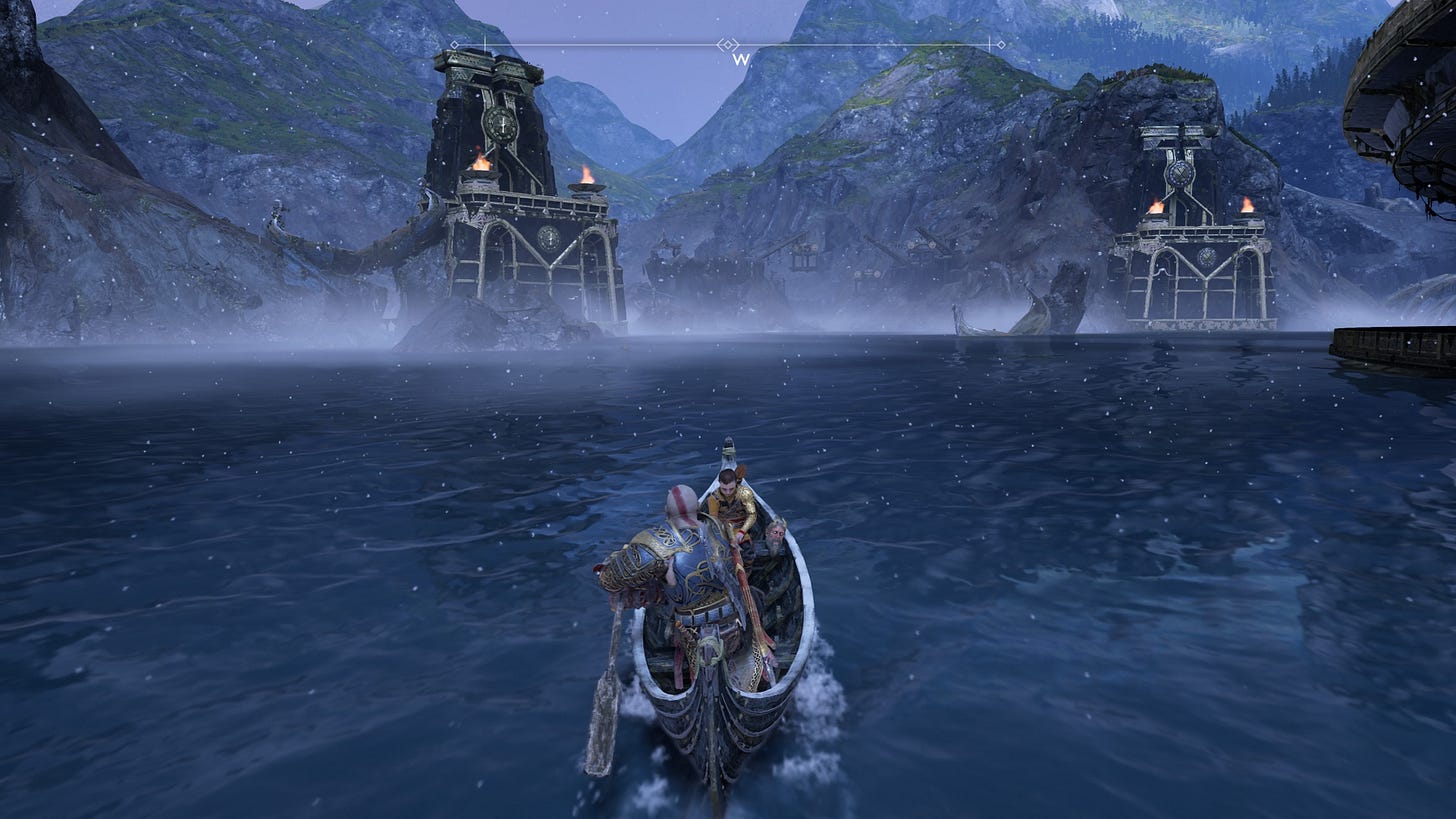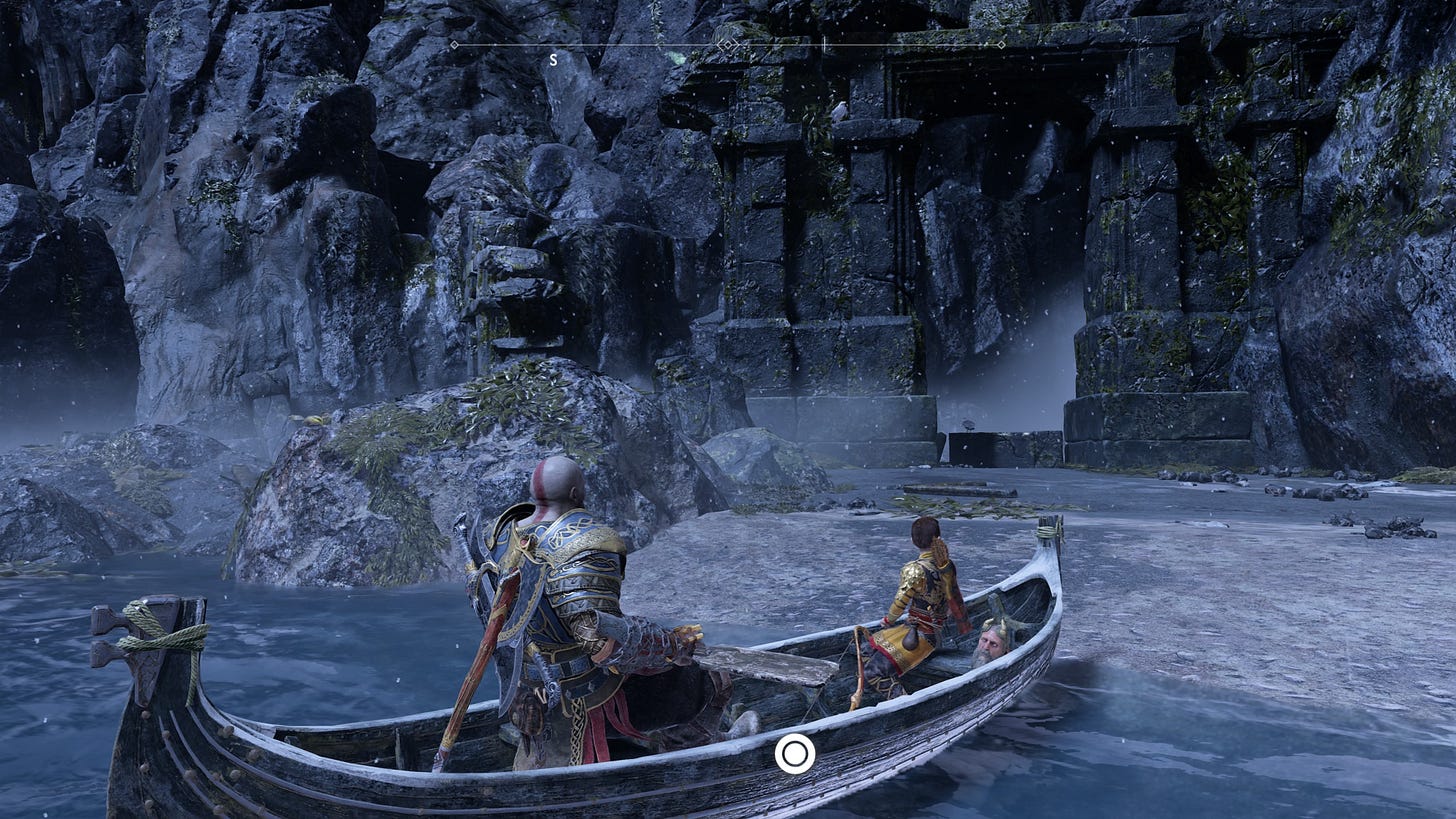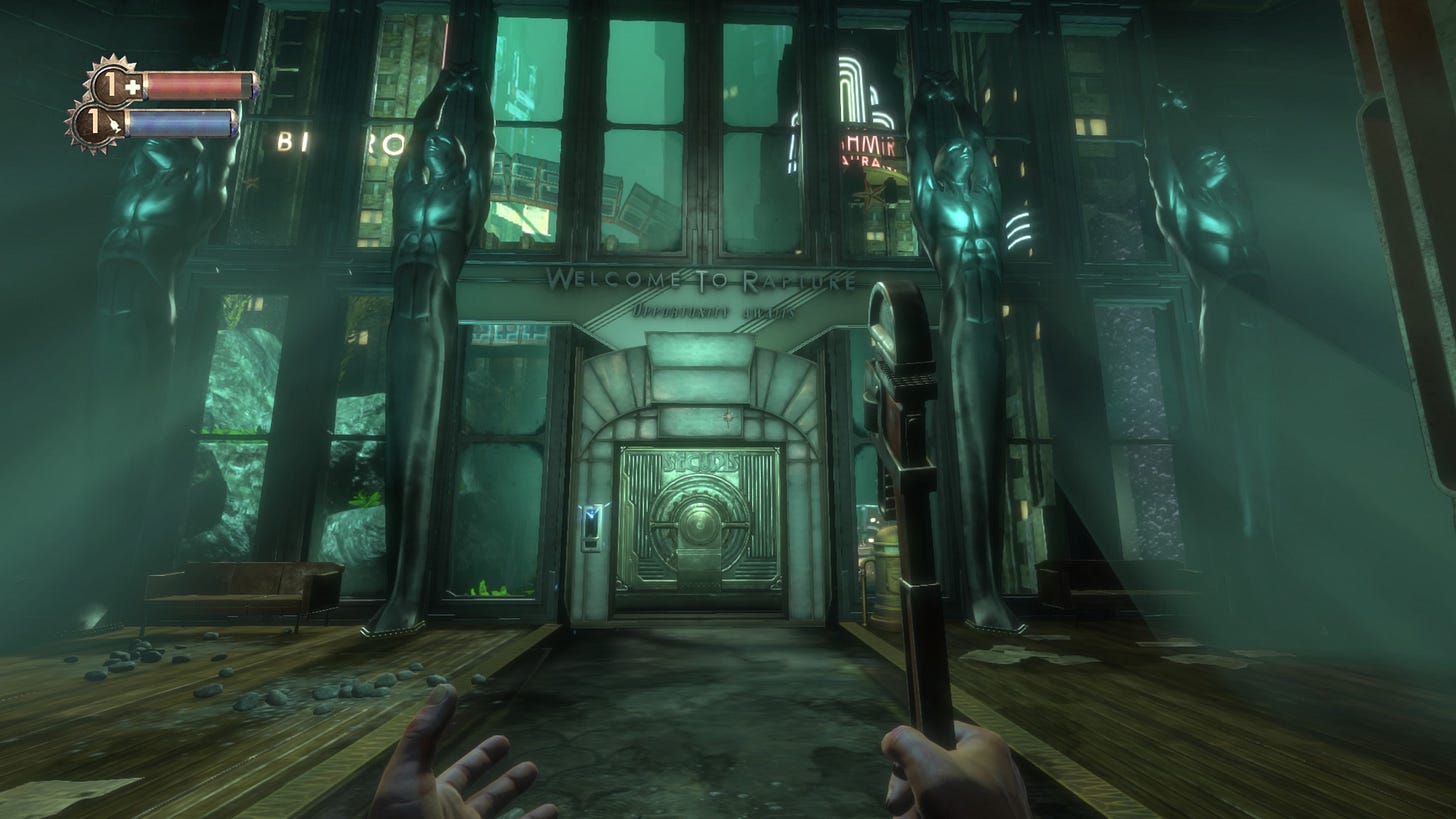Every time we play a video game, we are asked to suspend our disbelief. This typically doesn’t require much mental effort on our part, as we are willing to engage with an interactive story and play by its rules so long as we feel immersed in its virtual world and, most crucially, are having fun. However, as automatic as we normally justify our cognitive dissonance while gaming, there are still certain discrepancies, irritations, and oh-so-many nitpicks that slip through the cracks.
One such occurrence is a common point of tension in open world games—specifically, the push-and-pull between the game’s main quest and its side content and the lack of an appropriate in-universe narrative reason to tie everything together in a neat bow.
Take just about any game in The Legend of Zelda series as an example. The game’s main quest is telling you that Hyrule will fall if you don’t take every measure to retrieve the Master Sword, defeat Ganon, and save Princess Zelda ASAP. But don’t actually stress! Contrary to the game’s core plot, Link (you, the player) has an infinite amount of time to explore Hyrule, completing side quests, interacting with non-essential NPCs, and gathering heart pieces. Princess Zelda’s imminent danger can wait, I guess. There are Korok seeds to collect!
The term for this friction between a video game’s story and its gameplay is ludonarrative dissonance. And no, I’m not just evoking that term to make myself sound well-read and clever (although that is totally what I’m doing). And I’m not saying that the term hasn’t been heavily overused and misused in games criticism to the point of having lost some of its relevance (because, it totally has). Heck, there are people way smarter than me who have made strong arguments against the application of ludonarrative dissonance within the precise context I’m applying it to here.
But for the sake of simplicity and because I genuinely believe the incongruity between a game’s urgent storytelling to raise narrative stakes, and the design measures that same game establishes to make its optional content as accessible as possible is an example of ludonarrative dissonance… I say screw it!
Logan Taylor wrote an excellent article about this very subject. However, I do find it interesting that one of the examples they point to as an instance of this type of ludonarrative dissonance is from the 2018 reboot of God of War. Not because I want to discredit their experience with the game or even disagree with the points they outline. But because God of War features one of the most fascinating and beautifully succinct solutions to this issue I have ever come across. And it only needed four words.
But first, let me set the scene. I would describe God of War as being a semi-open world game. Kratos and Atreus’ adventure is structured around open hub areas which then branch off into more focused, linear levels. The hub area you’ll likely spend the most time exploring is the Lake of Nine—a large body of water in the centre of the Midgard map that is dotted with beaches and islets containing various side quests and collectibles.
As you row around the Lake of Nine, the characters pass the time by engaging in some chit-chat. And while these conversations are typically led by everyone’s favourite decapitated storyteller, Mimir, the dialogue exchange I want to focus on here happens after an important story beat roughly three quarters of the way through the game.
The plot point itself isn’t that relevant to this article. All I’ll say is that, at this stage of the game’s main story, the next essential step is for Kratos, Atreus, and Mimir to travel to Týr’s vault to find an important treasure. Before this happens, though, the characters must re-enter the Lake of Nine, presenting you, the player, with the opportunity to wander around and complete some optional content.
Here lies the ludonarrative dissonance. On the one hand, you have the central quest telling you to send Kratos and co to Týr’s vault as soon as possible. But on the other hand, the game’s critical path has led you to an already-established hub area threaded with ever-enticing secrets and distractions. And the only chance the developers have to bring some harmony to this situation is through the dialogue they write for the characters during this short boat trip.
So, here's what happens. After a brief conversation, Atreus says this line:
“Hey—we don’t have to go right back to Týr’s Vault, do we? I mean… we’re gods! We can do whatever we want, right? What do you really feel like doing right now?”
To this, Kratos—the game’s protagonist and the character through whom you, the player, control the events of your own entirely unique, entirely personal, one-of-a-kind God of War experience—replies with these four words:
“I will show you.”
Wow. I mean, wow. The first time I played God of War and heard that line, it stopped me dead in my tracks. I literally ceased pressing on the analog stick and watched my boat float on the water, as still as Mimir’s neck, while I let the meaning of those four words wash over me.
“I will show you.”
The writers had found a way to justify the succeeding actions of both the in-game characters and you, the player, in a single line of dialogue. No matter what happened after those four words were delivered—whether you continued with the main quest, talked to some dead sailors, fought some Valkyries, or just rowed around for the next two hours—it didn’t matter. Kratos was simply showing his son what he wanted to do next. And, regardless of what happens next, those steps will elegantly align with your own curiosity and decision-making. It’s so simple yet so effective. Four words and the dissonance had been made clean.
It's like the reverse “Would you kindly…” from BioShock (because this wouldn’t be an article on ludonarrative dissonance without mentioning BioShock). It’s a line of dialogue that celebrates player agency through granting permission to do… whatever you want!
As important as it is to zero in on what these four words are, it’s just as essential to discuss what they are not. They are not Kratos giving a sly wink through the fourth wall to the player. The line fits naturally into the conversation and sounds like an appropriate response for the character within the universe of the game. Lesser writers would have had Kratos rattle off all the possible side quests available to the player as a forced reminder that there are other things you could be doing right now in God of War. But the line is kept purposefully vague to encourage an inquisitive approach from the player.
I want to clarify that I do not think dialogue is the solution to all types of ludonarrative dissonance in video games. Nor do I think it’s the only solution to this particular issue. An example of dialogue being used to paper over gameplay cracks can be found in this game’s sequel, God of War: Ragnarök. The “helpful hints” that characters provided during puzzles in that game felt like a cheap way for the developers to bypass player thinking, poor design, or a combination of the two.
This is also a problem that doesn’t necessarily need solving. One of the reasons we suspend our disbelief every time we boot up a video game is to avoid overthinking issues that aren’t relevant to the overall enjoyment of that art. We don’t want our open world games to be filled with pedantic writing that only exists to explain the in-universe relationship between essential and optional content. Because that’s not fun at all.
Still, I’ll never forget these four words and how they effortlessly bridged the gap between my experience playing the game and those of the characters who existed inside of it. Four words that brought everything together as one.
The Video Game Storyteller is a free Substack written and formatted by Harry Fritsch on the lands of the Jagera and Turrbal people, the Traditional Custodians of Meanjin (Brisbane).
All images were either captured directly by the author or sourced from publicly available promotional screenshots.
Want to see more from The Video Game Storyteller? Check out our TikTok channel @thevgstoryteller.
If you wish to contact Harry, you may do so by emailing him at harryfritsch98@gmail.com.










Citizen Sleeper does this quite well, adding urgency to main quests with timers, leaving some room to do just a few side quests in parallel.